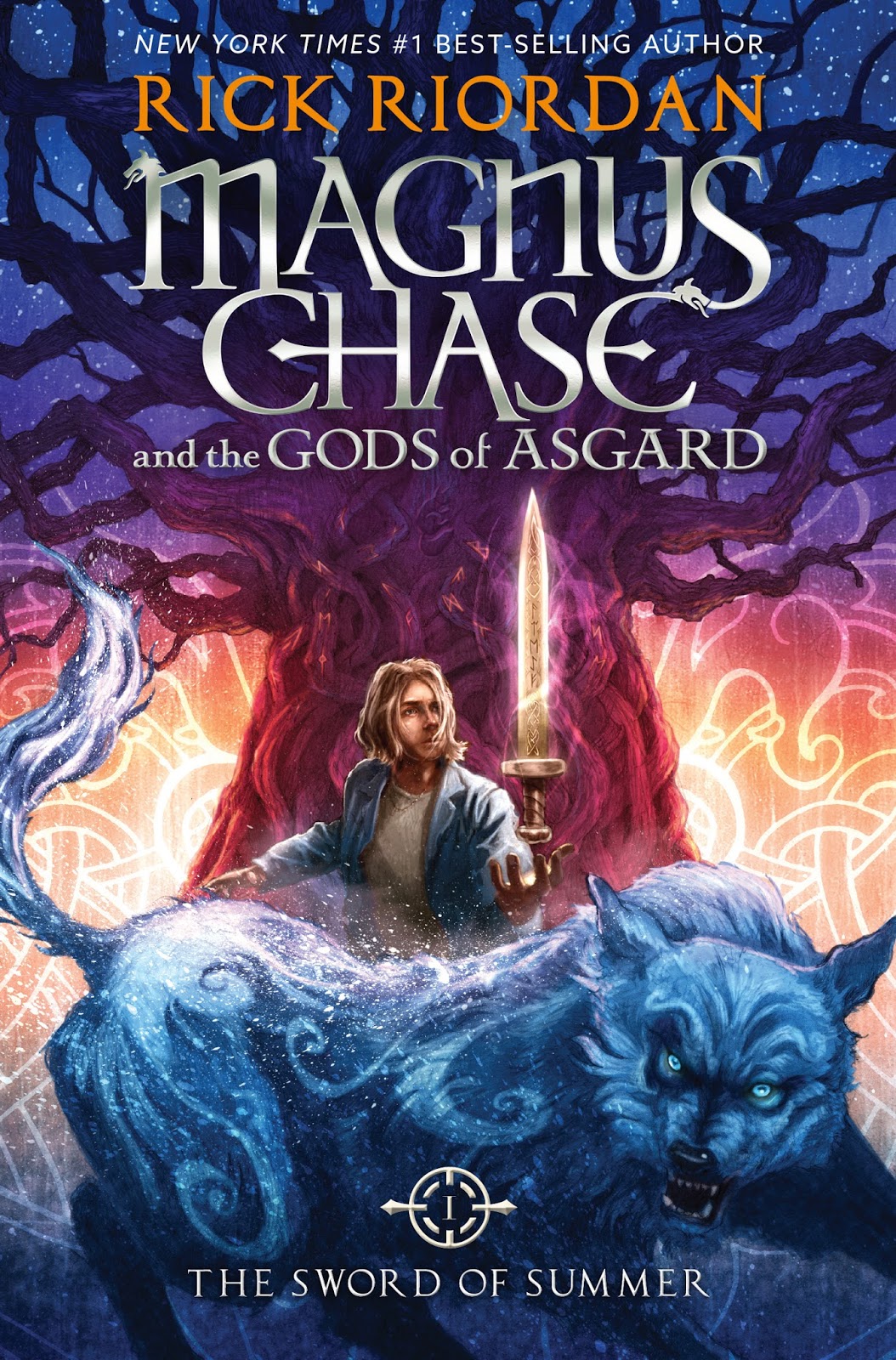
Rick Riordan’s new novel series, Magnus Chase and the Gods of Asgard, debuted Oct. 7 with The Sword of Summer. This series follows Riordan’s history of writing mythology-based novels — this time adapting Norse legends to appeal to a modern audience. While Riordan succeeds in writing with exemplary language and using humor to captivate readers, the novel is too similar to Riordan’s other works, and references, those works limiting Riordan’s audience.
Sword of Summer follows protagonist Magnus Chase in his journey from homeless teenager to heroic warrior, through the discovery that his father is the Norse god Frey, and his subsequent quest to prevent Ragnarok, the Norse version of the apocalypse.
Unfortunately, the story mimics Riordan’s first novel, The Lightning Thief, almost too much — the protagonist, Percy, also transforms from a disadvantaged adolescent to a valiant paragon after being claimed as a son of the Greek god Poseidon, and goes on a similar quest to prevent war between the gods.
However, Riordan’s mastery of language shines through in Sword of Summer. He uses first person point of view seamlessly, making the novel a friendly conversation with the reader. A key part of the novel, Riordan’s writing allows him to illustrate Norse mythology’s multiple universes in unique and immersive ways, and writes suspenseful yet funny sequences to keep the reader enticed.
Riordan’s characteristic humor is a key success to the novel. Riordan develops his sarcastic humor from one-dimensional comedy to a more satirical form, allowing him to appeal to a larger audience.
Despite this, much of the humor relies on references to Riordan’s previous works. Riordan is trying to reward his most loyal readers, but instead this gives Sword of Summer a fanfictional (stories written by fans using characters from their favorite media) quality and alienates new readers.
The novel includes a diverse set of characters, ranging from Magnus’s guide to the Norse world, Samirah al-Abbas, who struggles with her identity as an Arabic girl, to one of Magnus’ father figures, an elf named Hearthstone, who was rejected by his parents for his deafness. This diversity is a huge step forward from Riordan’s previous works — while Riordan represented many races in Heroes of Olympus, his new novel is the first time race plays a large role in the character’s personality and identity, and he represents minority characteristics beyond race.
Overall, Riordan’s writing skills are wasted because he tries too hard to please his devoted fans and writes a plot that parallels his other novels too closely — ultimately losing any potential audience the novel might cater to. Hopefully, as the series progresses, Riordan will introduce new elements to develop the story beyond the confinements of his usual style
This article represents the opinion of Monica Mai, Carolyn Ku, and Karan Nevatia.





